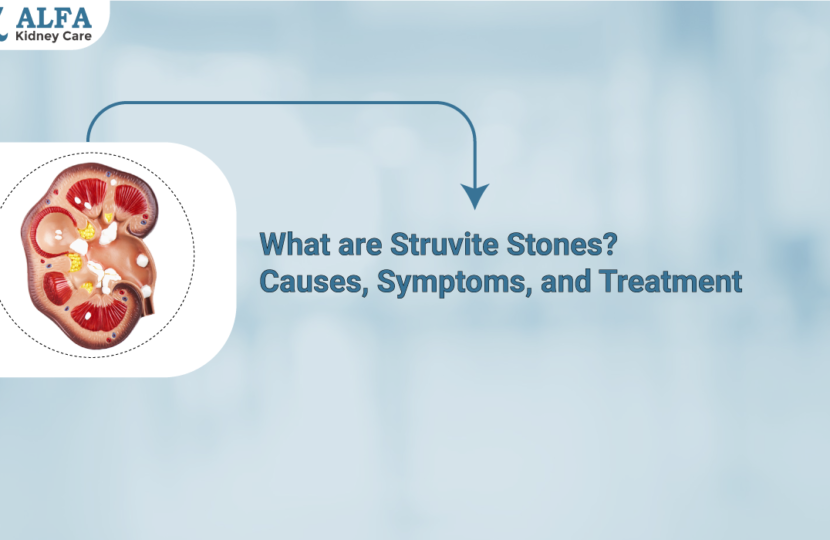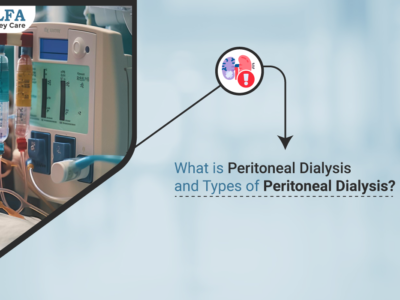Struvite stones are a type of kidney stone formed due to urinary tract infections. These stones can grow quickly and become quite large, often causing serious health issues if not treated promptly. Understanding the causes, symptoms, and treatment options for struvite stones is essential for managing this condition effectively. In this blog, we’ll explore everything you need to know about struvite stones, including their causes, symptoms, and treatment options.
What are Struvite Stones?
Struvite stones, also called infection stones, are made of magnesium ammonium phosphate. They typically form in the kidneys and can grow rapidly, filling the renal pelvis and extending into the calyces, leading to a staghorn appearance. These stones are more common in women than men and are often associated with urinary tract infections (UTIs).
What Causes Struvite Stones?
Struvite stones are caused by bacterial infections in the urinary tract. Certain bacteria produce an enzyme that breaks down urea in the urine into ammonia. This makes the urine more alkaline (less acidic), creating a perfect environment for struvite crystals to form and grow into stones.
Common factors that can lead to struvite stones include:
- Frequent UTIs: Repeated urinary tract infections increase the risk of struvite stones.
- Urinary Blockages: Conditions that block the flow of urine can cause infections and stone formation.
- Certain Medical Conditions: Neurological disorders affecting bladder function can lead to incomplete bladder emptying, increasing the risk of UTIs and stones.
- Use of Catheters: Long-term use of urinary catheters can introduce bacteria into the urinary tract, leading to infections and stone formation.
What are the Symptoms of Struvite Stones?
Struvite stones might not cause symptoms until they become large or block the flow of urine. Common symptoms include:
- Severe Pain: Sharp, cramping pain in the back, side, or lower abdomen, often spreading to the groin.
- Blood in Urine: Urine can look pink, red, or brown because there is blood in it.
- Frequent Urination: An increased need to urinate, often with small amounts of urine passed each time.
- Painful Urination: A burning sensation or discomfort during urination.
- Fever and Chills: Signs of an infection in the urinary tract.
- Nausea and Vomiting: Often accompany the severe pain caused by stones.
If you notice any of these symptoms, it’s important to go see a Kidney Specialist doctor immediately.
How are Struvite Stones Treated?
The main goals of treating struvite stones are to remove the stones, treat the infection, and prevent future stones. Treatment options include:
- Antibiotics: These are used to treat the underlying infection that caused the stones.
- Surgical Removal: Large stones may need to be surgically removed. Procedures include:
- Percutaneous Nephrolithotomy (PCNL): A minimally invasive surgery where a small incision is made in the back to remove the stones.
- Shock Wave Lithotripsy (SWL): Shock waves are used to break the stones into smaller pieces that can pass through urine.
- Ureteroscopy: A thin tube is inserted through the urethra and bladder to break up and remove the stones.
- Medications: Drugs may be prescribed to make the urine more acidic, which can help dissolve the stones and prevent new ones from forming.
- Dietary Changes: Reducing intake of foods high in magnesium and phosphate can help prevent stone formation.
Preventing Struvite Stones
Prevention strategies focus on reducing the risk of urinary tract infections and maintaining a healthy urinary environment. Here are some tips to help prevent struvite stones:
- Stay Hydrated: Drink plenty of fluids to keep urine diluted and flush out bacteria.
- Good Hygiene: Practice good personal hygiene to prevent infections, especially after using the bathroom.
- Regular Medical Checkups: Regular checkups with your healthcare provider can help detect and treat UTIs early.
- Avoid Holding Urine: Empty your bladder regularly to reduce the risk of bacterial growth.
- Follow Medical Advice: Adhere to prescribed antibiotic regimens and any other medical advice to prevent infections.
Conclusion
Struvite stones are serious and often linked to urinary tract infections. Recognizing the symptoms and getting timely treatment can prevent complications and help you recover. By understanding what causes struvite stones and how to treat and prevent them, you can take steps to maintain good urinary health and avoid future problems. For more detailed information, visit the Alfa Kidney Care.


